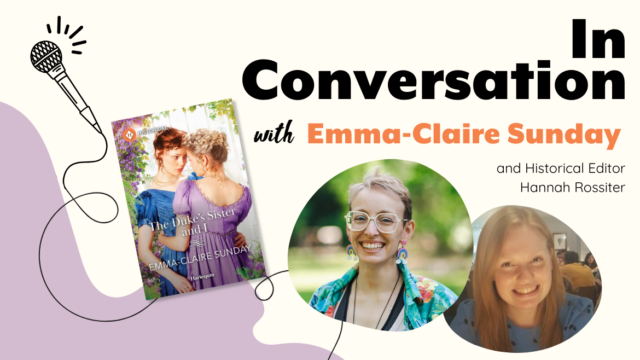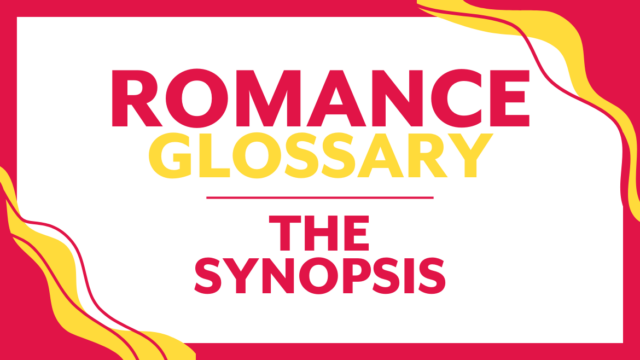Welcome to the first in our new monthly Advice From The Archives column! This is where you’ll be able to find timeless advice from the Harlequin editors on how to write the perfect romance. This blog dates from the 2010 New Voices competition that Harlequin UK ran – so please forgive all the British-isms! It’s a long one, but it’s a total gem – enjoy!
Have you ever wondered why you can’t get your characters to behave in the way they should? Or why your ending isn’t as satisfactory as it ought to be? Well, worry not, for Romance HQ has the answers! Well, some of them… We’ve polled our trusty editors and come up with what we think are some of the most common pitfalls of plotting a romance novel.
Your enemies are…
- Clichéd Openings
- Puppet Characters
- Plot – Show and Tell
- ‘Crunch Time’ – Your Ending
Let’s begin with those pesky first scenes…
Here, collated for your reading pleasure, are the official Mills & Boon Top Ten Most Clichéd Openings:
#10 “It’s not you…” We’ve all heard this one! Dumped, heartbroken heroine discovers ex is a faithless devil and swears off men.
#9 “I’ll be back…” Absent husband returns to seek revenge.
#8 “Promise me! Promise…meee…!” Deathbed vows to contrive a meeting.
#7 “You see, there’s something rather unorthodox…” Will readings to force conflict. Or even “Till death do us bring together.” Funerals, what a cheery way to start a romance 😉
#6 “I’m getting on the next plane to…” Heroine leaves To Start A New Life.
#5 “To sir, with love” Your new boss, that one-night stand.
#4 “Insufferable man!” Heroine and hero take an instant dislike to each other.
#3 “Crying over spilled coffee” Accidentally bumping/crashing into each other.
#2 “The name’s Jones. Bridget Jones.” Hero catches heroine in embarrassing situation.
#1 “Fancy meeting you, ex, in the middle of my desert trek…” Coincidental reunions (Yes, SATC2 – we’re talking to you…).
But wait! Before you scrap those opening chapters, remember that clichéd openings are clichéd for a reason.
When and how clichéd openings work:
- They can be an easy way to get straight into character and conflicts, e.g. “dumped” is an easy way to bring out the heroine’s back story.
- They involve an immediate event to pull the reader in. You need to grab the reader by the throat/heartstrings/whatever you can and keep her attention!
- A familiar plot allows the reader to understand immediately the sort of read they are getting, and with your feet on safe ground you can play with other elements!
- They can help you engage readers immediately to your characters. Who can resist a heroine who’s struggling to get into big pants for a hot date! A heroine in an ‘embarrassing situation’ immediately gets the reader onside.
- They’re a useful springboard to your plot – it’s not always easy to get your hero and heroine on the same page!
When clichéd openings don’t work:
- They can lack individuality in their detail and voice.
- When they’re plot driven. If the plot is just used as a vehicle to get characters together it can feel contrived, it’s the characters’ unique reaction to the situation that creates the magic.
- They often involve too much focus on mundane details.
A talented writer uses these openings to showcase their individual voice, and often gives these openings a unique twist of their own, rather than relying on them. To help avoid the pitfalls, here are three basic steps to follow:
- Choose your set-up carefully and be aware of why you are using it.
- Question if this is the best way to bring your characters together.
- Understand the convention before twisting it.
Now, onto Characters Behaving Badly…
Acting out of character for the sake of the plot is a no-no. If your characters start bending every which way just to reach your desired conclusion then you are writing puppets, not people. Individual motivations and reactions are key – if these are not believable then your story won’t work. Remember how annoying it is when your favourite characters start acting crazy?
Just remember, never EVER let the plot get in the way of the romance – change the plot, not your characters!
Next let’s deal with the back stage/front stage struggle…
When To Show, and When To Tell?
Events that should be front stage are anything that moves on the romance or creates conflict and has its basis in emotion. Anything else is window dressing – watch that it doesn’t start blocking the view.
Ah hah! I hear you say – what about back story? The thing is, the most powerful back story is the one the reader sees through your characters’ reactions. Ask yourself how your characters’ story can be brought in through dialogue or their natural responses to situations and woven in to the story. If you are portraying your characters with enough sensitivity, subtlety and detail, we should get a sense of their back story before knowing any of the details.
How To Grab Them at Goodbye!
Plot devices have no place in your final crisis. Think about the most powerful endings you’ve seen or read – they’re all about the emotional turmoil, not the action. In Bridges of Madison County there’s actually negative action in that final moment – Meryl Streep doesn’t get out the car! If you find yourself inserting a plot complication, involving a secondary character or an elementary misunderstanding, ask yourself – does your story need it? Can it be an emotionally black moment without the physical drama?
So folks, there we have them. The Pitfalls of Plotting. Whether putting pen to paper or finger to iPad, keep in mind these all-important points:
- Choose your set-up carefully
- Make sure your characters are driving the plot
- The reader is interested in reaction not action
- Know what plot needs to be on the page
- Your reader will go with any plot if they believe in your characters
- The characters are going on a journey – think of the plot as the road not the destination!
You’ve heard from the Harlequin editors, but make sure you tune in on Friday for the inaugural weekly Interview With… column with Harlequin Presents author Maisey Yates!



